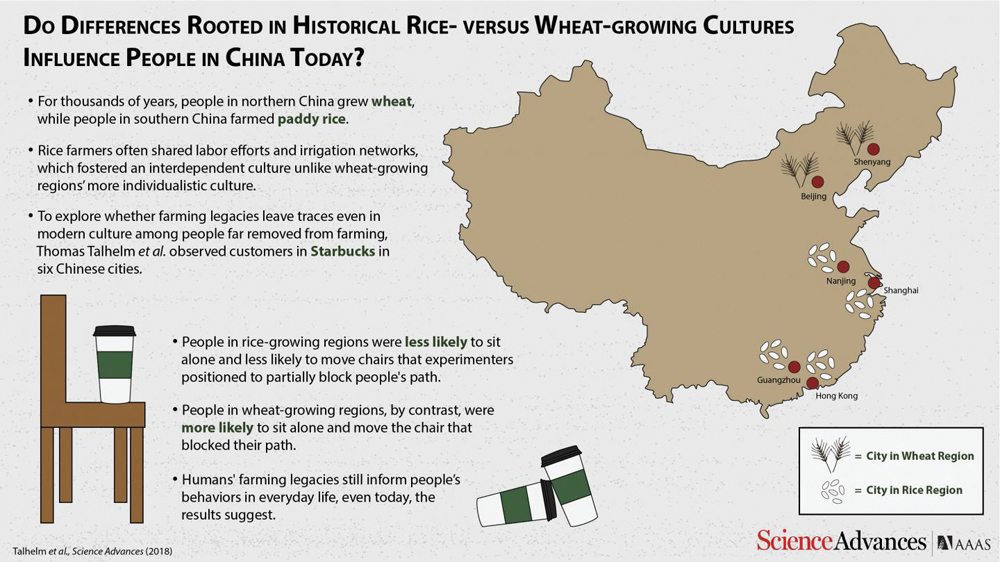There could be a lot of behaviour that’s rooted in historic agriculture, at least in modern China.
Researchers there say they’ve been observing the social interactions of Starbucks customers in six cities. What they’ve found is that they can tell if a person comes from a rice- or wheat-growing area, regardless if that individual is — or ever has been — a farmer.
People from rice-growing regions showed interdependent behaviours, like sitting in groups or squeezing themselves through narrowly placed chairs.
People from wheat-growing regions more often displayed individualistic behaviours, sitting alone or actively moving chairs that blocked their way.
Read Also

KAP flags risky trade for Manitoba farmers
Tariffs, market access uncertainty, trade diversification and export infrastructure top the agenda at Keystone Agricultural Producers (KAP) annual meeting.
These behavioural differences among customers provide the first evidence that historical rice versus wheat cultural differences extend into modern life, says author Thomas Talhelm, and they challenge the theory that as countries become wealthy, modernized, and urbanized, people in those cultures become more individualistic.
People’s farming legacies seemed more important than factors like wealth, in explaining their everyday behaviour.
Rice farmers often shared labour and co-ordinated irrigation, which likely resulted in an interdependent culture — something not common in wheat-growing regions, where farmers were more individualistic.
Among other findings, customers in the wealthier cities — more westernized and thus thought more in line with wheat-growing cultures — were in fact less individualistic.
According to Talhelm and colleagues, their study shows evidence of historical cultures as being at the root of meaningful regional differences.















